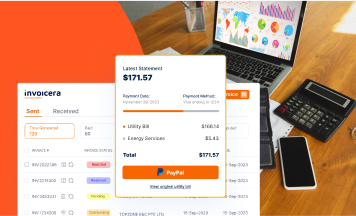The real estate market is on an upswing. With the revival of economy, this industry has witnessed positive growth year on year in primary as well as secondary markets. With a lot of earnest money being traded for these big ticket projects, it becomes imperative to understand how the money is managed in case of any disputes.
To comprehend this better, we must first get a good knowledge of what earnest money is. Earnest money is the initial money deposit made to the seller to express interest in the property and to show the buyer’s good faith in the transaction. To maintain fairness and transparency in the deal, earnest money is kept with the holder. The holder of this money keeps it in a temporary account called escrow account. In most cases a trust or the listing broker acts as the holder of the earnest money. This is one good way by which the buyer can show his seriousness in buying the property. Once the deal is finalized the funds are put towards the buyer’s down payment and the holder releases the money to the seller of the property.
There are cases when the deal falls through for some reasons. Typically, if the seller terminates the deal, the earnest money will be returned back to the buyer from the escrow account and when the buyer is responsible for withdrawing the offer, the seller usually keeps the money. This of course is approved by the holder once a written agreement is signed by all parties having an interest in the funds. This written agreement is in the form of RF-481 (Earnest Money Disbursement and Mutual Release of Sale and Purchase). The holder of earnest money can release the funds from their escrow account to the seller, buyer, closing attorney or court.
What we discussed above was a perfect scenario where every stakeholder nods in agreement. There are however, some cases in real where disputes arise between the seller and the buyer as they do not agree on who should receive the earnest money. Let us look at an illustration to understand this better. Let’s say that the seller has put his property for sale. A potential buyer views it and expresses interest in purchasing the property. He pays the earnest money to the holder which gets deposited in the escrow account. The buyer also has an approved loan to pay the balance amount to the seller but the night before closing the deal, it is discovered that the buyer’s credit score has dropped by few points due to which the bank has refused to lend money for the project. Now the buyer is not in the position to pay the remaining amount and hence the deal comes to a halt. This becomes frustrating and equally devastating for the seller as well as he has packed all his possessions and loaded them in the truck. Not only that, he is now unable to purchase the house he wanted to purchase the same day after he had money in hand. The last minute fallout from the buyer will lead to unnecessary financial stress for everyone. The buyer would ask for the earnest money to be returned as the fallout was genuinely not his mistake. The seller on the other hand would not permit the release of money back to the buyer as he has incurred monitory loss too.
In such cases when the disputes arises due to the complexity of the situation, even the holder cannot release money until he receives order from the court or arbitrator having jurisdiction or upon filing an interpleader action. The earnest money will be turned to the clerk of court till the time this issue gets resolved. Presenting the case to the arbitration or interpleader has its own set of consequences. If you examine it closely you would realize that both parties lose in one way or the other. The legal processes and fees eats up significant part of the earnest money making one wonder if it was worth the cost.
In reality a small percentage of cases are difficult to resolve at holder’s level. When a case of such a kind is encountered and is escalated to the legal authorities it gets stuck in the processes and formalities which can be avoided otherwise. My recommendation for both the involved parties would be to rationally analyze the situation and reach to a fair compromise where amount is split amongst them in an agreed proportion so that both parties have some cover of the loss borne by them.








